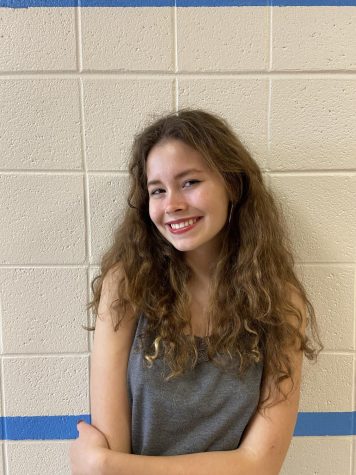A “uni”-que experience: Whitman students explore international universities
October 28, 2021
With an oat milk latte in hand and a scarf wrapped around her neck, college sophomore Evie Wilder (’20) makes her way through the stone buildings of St. Andrews University, one of the oldest higher education institutions in Scotland. She greets students passing by, her ears filled with the familiar deafening calls of seagulls, their noises softened against the ringing of centuries-old church bells. After pausing to check the university’s live events for the day on a school Facebook page, she strolls along the coast that overlooks the nearby West Sands Beach as she heads to the main quad for her next class.
Set on watching a student-led fashion show that evening, Wilder’s mind wanders to her sister, almost 3500 miles away at the University of Maryland. Wilder doesn’t have to think too far out of the box to imagine what her sister’s evening will consist of.
“American kids have that classic American college experience ingrained in their minds,” she said. “When I visit my sister at UMD, I’m able to see the classic football games, tailgates, fraternities and sororities there. American students are so accustomed to the American education system that they’re not ready to inquire about the new schools abroad.”
Wilder is in her second year at the University of St. Andrews. She grew up believing that she would study at an American university, but during her senior year at Whitman, she chose to apply to a plethora of international universities instead. Her list consisted of the University of Edinburgh, the University of Sussex, the University of Brighton and the University of St. Andrews, all of which she picked in part because some of her relatives were already in Europe.
“I have family living in England, which is nice because I can travel down there for weekends sometimes,” Wilder said. “This made it easier for me to adjust to St. Andrews. I didn’t feel like I was flying halfway across the world from everything I knew.”
Senior Valentine Lauwers is also set on applying to international universities because of close familial ties to Europe; she lived with extended family members in Switzerland for nearly two years. She later spent three more years with different relatives in Belgium.
“Although I’ve done my studies in the U.S., it is ultimately easier for me to go back home,” Lauwers said.
After living in Europe, Lauwers said she’s found that an international experience is often what pushes a student to spend their university years abroad. She grew up with European customs and observed the ins and outs of various cultures, but she’s also uniquely familiar with European education systems. This type of knowledge makes the difference for many students when they’re choosing whether to apply internationally, Lauwers said.
“Most people from Whitman, apart from the immigrant families, are American,” she said. “This means they don’t go out of the country as often. Being an international student opens up more options for universities in regards to knowing how to speak other languages and being raised with other cultures.”
Senior Felipe DeBolle, who is applying to international universities throughout Europe — in Italy primarily — agreed with Lauwers. DeBolle has relatives in Brazil, the U.K., and Belgium, and he’s found that for students with families in the United States, going to American universities often seems like the most logical decision. A lack of experience outside the country makes choosing to live in another nation a much harder step to take, DeBolle said.
DeBolle’s interest in meeting people from different backgrounds and becoming immersed in new cultures is what swayed him to apply to schools in Europe.
“I think that that would really make me grow as a person,” DeBolle said. “I want to experience so many new things in the prime of my life.”
Wilder is “in the prime of her life” at her university, she said. While living internationally, she has relished experiencing traditions special to St. Andrews, including student-led balls and parties with themes that have included the roaring 20s and the Great Gatsby. Occasions at St. Andrews differ greatly from those at a typical American university, she said.
“We have big events,” Wilder said. “There are balls, such as the opening ball, and then two big fashion shows in the spring. I’d say that it is not very common for an American university to have the student life revolve around attending fashion shows and proper dances.”
International universities contrast with their American counterparts in terms of cost and admission criteria as well. In the U.S., college tuition is generally much higher than in Europe. American universities cost nearly twice as much as European universities per year; higher education in the U.S. costs each student an average of $30,165 annually, compared to $13,050 per year for international students in Europe.
For Lauwers, studying in the United Kingdom would be much more affordable than attaining a college degree in the U.S. The lower cost of U.K. universities feels more than appropriate to her for five years of higher education, she said. In Europe, it’s common to finish a bachelor’s and then a master’s degree in five years of schooling.
“Hopefully, from this experience, I’ll get an accelerated education that is a similar level of that to the U.S. but at a better price,” Lauwers said.
When selecting the students who will study at their institutions, European admissions officers tend to pay more attention to students’ academic accomplishments than their extracurricular. This starkly contrasts with many American institutions which give both significant weight, Wilder said.
“It was definitely weird for me, because we’ve been ingrained on the importance of doing extracurriculars and appearing to be a ‘well-rounded person’ with multiple interests, but they didn’t care about that when I was applying,” Wilder said. “They don’t care about extracurriculars, such as what sports team you’re on, unless it applies to a degree.”
However, having an area of academic interest is vital when deciding to apply internationally, Wilder said. In Europe, students can’t major or minor in subjects, like it’s common to do in America. Instead, when applying, students pick a particular program of study which is made up of courses required to complete a specific degree.
Programs of study are similar to the majors in the U.S., Wilder said. In Europe, though, it’s much more difficult to switch studies after acceptance to a program. Wilder takes three courses at St. Andrews: an international relations course, a modern history course and an art history course — all topics with overlap.
“I learned a lot about those three subjects, but it is very narrow in my area of studying,” she said.
Students with a desire for a variety of course options are likely better suited for American universities, since these colleges allow for more flexibility in exploring different areas, Wilder said. Since Wilder knew that she wanted to study history, she didn’t struggle to pick her program of study. She enjoys the specialization of her academic environment, which makes her feel that she wouldn’t want to attend any university other than St. Andrews, she said.
While exploring foreign options can be rewarding, DeBolle has encountered difficulties with the international application process at Whitman. Even with counselors’ help and resources, he feels alone in his journey since Whitman staff members don’t know as much about international application logistics as they do about those in the U.S., he said.
Regardless of his struggles, DeBolle has found that applying to international schools will likely be worthwhile.
“If people are interested in applying to international universities it’s just a nice experience to go through,” DeBolle said. “It expands your options and teaches you a lot, even if you end up not going internationally.”









